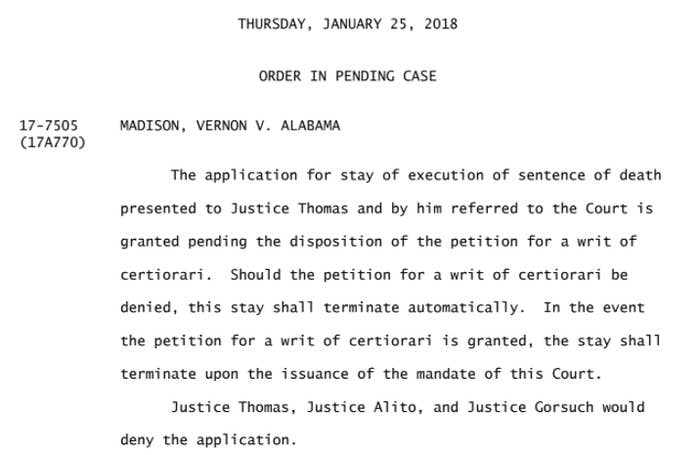
The Supreme Court on Thursday night halted the scheduled execution of Vernon Madison, who was set to face lethal injection in Alabama for the 1985 murder of a police officer.
The stay of execution was granted by the court while the justices consider whether to take up Madison's case in which his lawyers argue he is no longer competent to face execution, noting this he has been diagnosed with vascular dementia and "is unable to recollect the sequence of events from the offense, to his arrest, to his trial and can no longer connect the underlying offense to his punishment." Alabama's lawyers opposed the request.
Justices Clarence Thomas, Samuel Alito, and Neil Gorsuch noted that they would have allowed the execution to proceed. At least five justices had to vote to grant the stay of execution, but justices do not have to announce their vote on stay applications like Madison's stay request, so the exact vote tally — and the votes of the other justices — is not known publicly.
In another petition, also still pending before the Supreme Court, Madison's lawyers argue that carrying out a death sentence imposed by a judge when the jury had voted to sentence Madison to life is "arbitrary and capricious" now that the state eliminated the possibility of "judicial override." Alabama also opposes that request.


